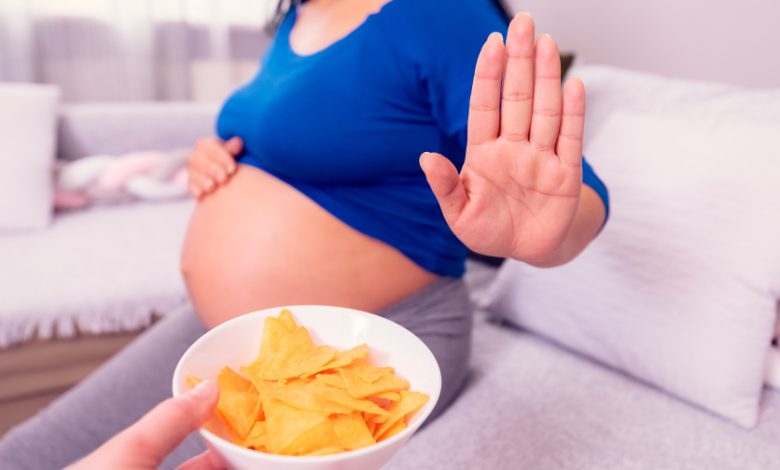Foods to Avoid During Pregnancy: A Comprehensive List

FFoods to Avoid During Pregnancy
Maintaining a healthy diet during pregnancy is essential for both the mother and baby. Some foods can pose risks due to potential infections, harmful substances, or their impact on fetal development. Here’s a list of foods to avoid to ensure a safe and healthy pregnancy.
Raw and Undercooked Meats
Uncooked or undercooked meats may contain harmful bacteria like Salmonella and Listeria, which can lead to infections that harm both the mother and baby. Always ensure meats are fully cooked to a safe internal temperature.
High-Mercury Fish and Seafood
Fish high in mercury—such as shark, swordfish, and king mackerel—can negatively impact the baby’s nervous system and brain development. Opt for low-mercury fish like salmon or tilapia instead.
Raw and Undercooked Fish
Sushi and other raw fish dishes can contain parasites and bacteria, increasing the risk of foodborne illnesses. Stick to fully cooked seafood during pregnancy.
Unpasteurized Dairy Products
Dairy products that haven’t been pasteurized may carry harmful bacteria like Listeria and Salmonella. Choose pasteurized milk, cheese, and yogurt to minimize risk.
Raw Eggs and Foods Containing Raw Eggs
Avoid raw or undercooked eggs, as they may contain Salmonella. Be cautious with homemade dressings, mayonnaise, and desserts made with raw eggs unless they are pasteurized.
Processed and Deli Meats
Deli meats, hot dogs, and processed meats can be contaminated with Listeria and are also high in sodium and unhealthy fats. If consuming deli meats, reheat them thoroughly until steaming hot.
Unwashed Fruits and Vegetables
Fresh produce can carry bacteria and parasites. Always wash fruits and vegetables under running water before eating, and consider peeling or cooking them when necessary.
Raw Sprouts
Raw sprouts like alfalfa, bean, or radish sprouts can harbor bacteria and should be avoided unless fully cooked.
Alcohol
There is no safe level of alcohol during pregnancy. Drinking alcohol can increase the risk of miscarriage, stillbirth, and fetal alcohol syndrome, affecting the baby’s development.
Soft and Unpasteurized Cheeses
Soft cheeses made from unpasteurized milk, such as brie, feta, and blue cheese, may contain Listeria. Always check labels and choose pasteurized varieties.
Organ Meats
Although organ meats contain important nutrients, excessive amounts can lead to high vitamin A levels, which may harm the baby, particularly in early pregnancy.
Caffeine
Limit caffeine intake to no more than 200 mg per day (about one cup of coffee) to reduce the risk of miscarriage and preterm birth.
Processed and Junk Foods
Highly processed foods lack essential nutrients and contain unhealthy fats, sugar, and sodium, contributing to excessive weight gain and potential complications like gestational diabetes.
Artificial Sweeteners
While some artificial sweeteners are considered safe in moderation, saccharin should be avoided as it can cross the placenta and may be harmful to the baby.
Unripe Papaya
Unripe papaya contains latex and papain, which may trigger uterine contractions and increase the risk of miscarriage or preterm labor. Fully ripe papaya, however, is generally safe in moderation.
Leftover Foods
Leftovers should be stored properly and reheated to at least 140°F (60°C) to reduce the risk of Listeria contamination. Avoid eating food that has been left out for long periods.
Excessive Salt Intake
Too much salt can cause fluid retention and raise blood pressure, potentially leading to complications such as preeclampsia. Opt for fresh, minimally processed foods to control sodium intake.
Conclusion
Making informed dietary choices during pregnancy is essential for both maternal and fetal health. Avoiding certain foods helps reduce risks such as infections, developmental issues, and pregnancy complications. For personalized nutrition advice, always consult a healthcare provider.



